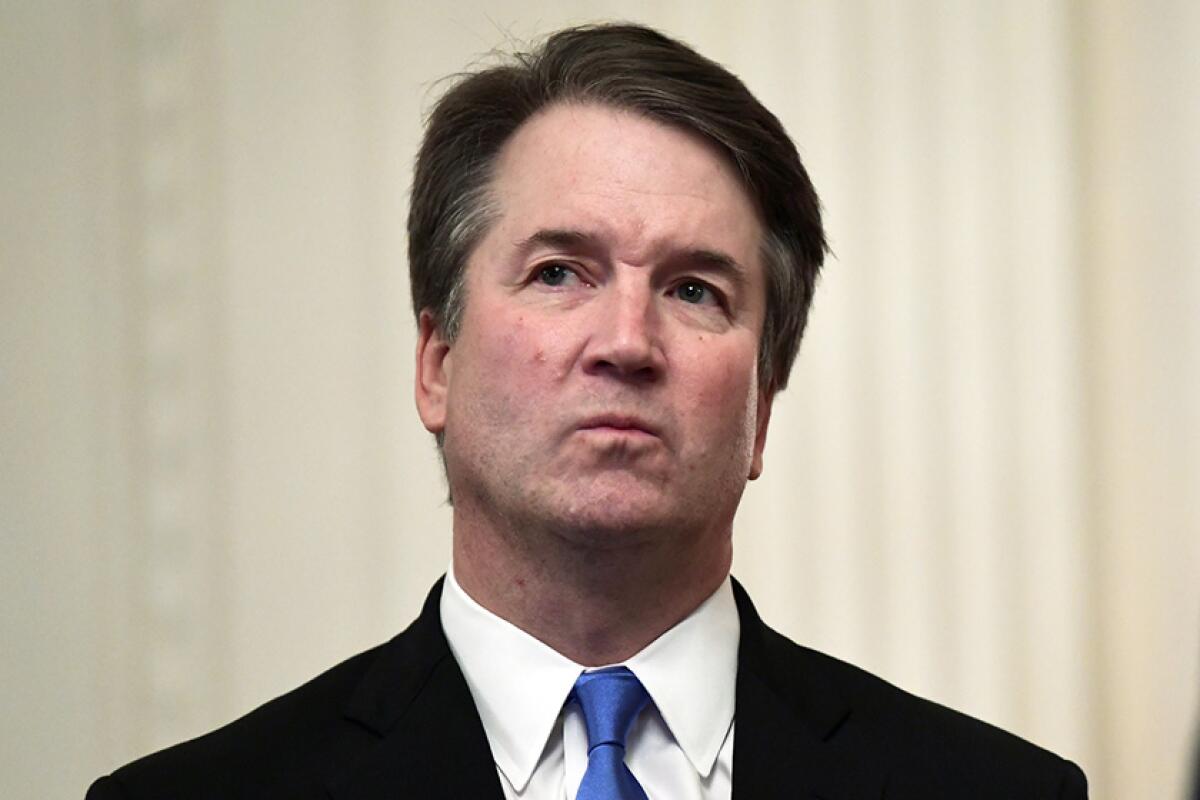Editorial: Kids who kill deserve a chance at rehabilitation and release

- Share via
The U.S. Supreme Court, which in a landmark 2012 decision made it harder to send juveniles to prison for life without parole, reversed course Thursday by holding that judges may impose such a sentence without determining that the offender is “permanently incorrigible.” The 6-3 decision came in the case of Brett Jones, who was 15 when he stabbed his grandfather to death in Mississippi.
The ruling by the court’s conservative majority is disturbing because it’s likely to make judges in states where such sentences are still permissible less careful in exiling young offenders permanently from society. That would undermine the commonsense principle that ran through a series of previous Supreme Court decisions involving juvenile offenders: that because of their immaturity and impulsiveness, young people may not fairly be judged by the same standards as adults.
The court applied that principle in 2005 when it outlawed the death penalty for murderers who were under 18 when they committed their crimes. Seven years later, the court said laws mandating life in prison without parole for juvenile offenders “prevent the sentencer from considering youth and from assessing whether the law’s harshest term of imprisonment proportionately punishes a juvenile offender.”
On Thursday the court’s conservative majority rejected the argument that a sentencing judge must explicitly or implicitly rule that a convicted defendant is “permanently incorrigible.” Writing for the court, Justice Brett M. Kavanaugh suggested that it was enough that a judge sentenced Jones to life in prison without parole after hearing his lawyer argue that Jones’ “chronological age” diminished the justification for the harshest penalty.
Justice Sonia Sotomayor, in a dissent joined by Justices Stephen G. Breyer and Elena Kagan, argued that the majority had gutted previous decisions — a contention Kavanaugh disputed. It’s clear, however, that if the court had required judges to focus specifically on the question of incorrigibility, it would have made them less likely to lock up an offender forever.
Yet even if this case had come out the other way, some murderers who were minors when they committed their crimes could have been labeled incapable of rehabilitation at an absurdly young age. As we have argued before, that is unjust. Even the most conscientious judge can’t predict with accuracy whether a young person who has committed a horrific crime will be capable of redemption decades in the future.
That sort of judgment is best made during an inmate’s incarceration by parole officials and judges who can consider evidence that the prisoner has been rehabilitated. Such an evaluation is impossible if a sentencing judge is able to foreclose any chance of parole.
When the court ruled in 2012 that states couldn’t mandate life in prison without parole for juvenile murderers, we said that it should have gone further and declared all such sentences unconstitutional. Now that the court has headed in the direction of making such sentences more likely, lawmakers must follow the lead of California and 24 other states and abolish life terms with no hope for parole for offenders under 18.
More to Read
A cure for the common opinion
Get thought-provoking perspectives with our weekly newsletter.
You may occasionally receive promotional content from the Los Angeles Times.










